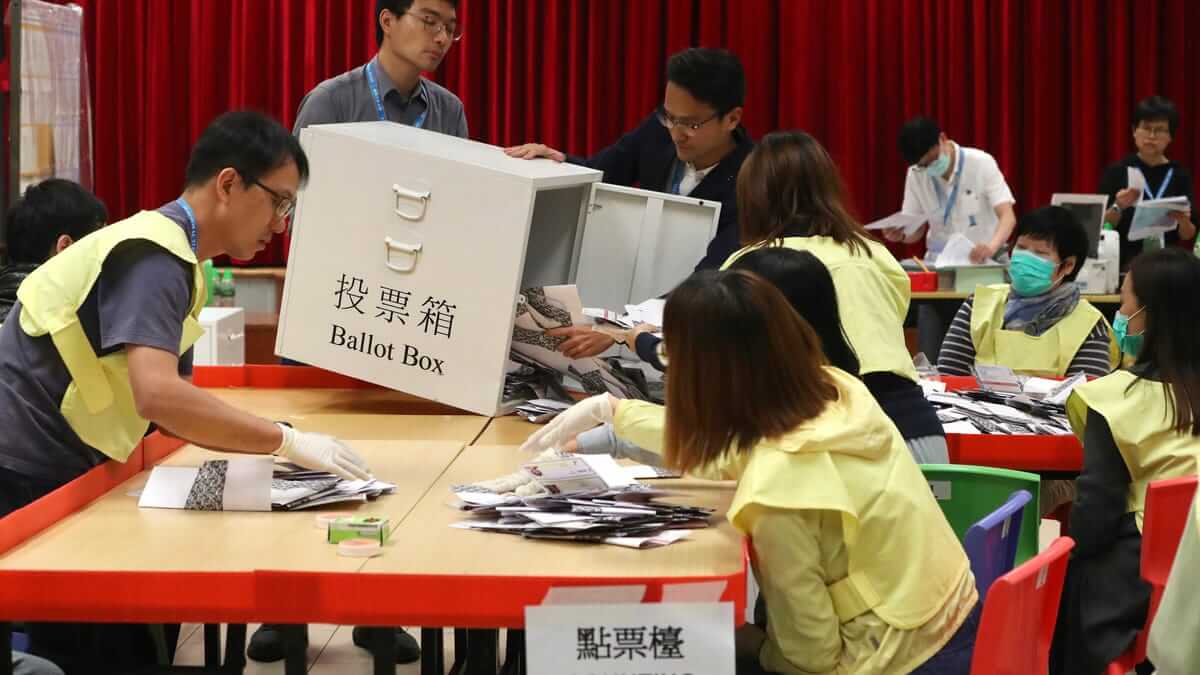Hong Kong’s Election Committee (EC) that would select 40 of the 90 members of the Legislative Council and the city’s Chief Executive has been formed, after voting was completed on Sunday.
The counting of votes for the 364 members of the powerful committee faced a lengthy eight-hour delay due to human errors, judgement errors with front-line staff, jamming of the ballot counting machine, and issues with the ballot verification papers. In total, it took nearly 14 hours to count the ballots.
The 364 members represent nearly a quarter of the 1,500-strong body. The remaining seats were already filled before polling on Sunday because they were “uncontested, appointed, or ex-officio positions.” Another 52 seats would be filled following the December elections of the Legislative Council (Legco).
As many as 4,380 eligible voters turned up to cast their ballots while 412 people contested the poll, of which one of two opposition-leaning candidates won.
Chinese state-owned media house Global Times quoted Hong Kong’s pro-Beijing Chief Executive, Carrie Lam, saying that “the election is expected to bring a new phase to Hong Kong’s political landscape” and ensure that patriots govern the Chinese autonomous region. She added, “The EC will pave a good way for the ensuing two pivotal elections: the Legislative Council (LegCo) election on December 19, and the Chief Executive election on March 27 next year.”
It is Hong Kong’s first election since an electoral reform law was enacted in May with a landslide majority in the Legco, which is dominated by pro-Beijing lawmakers. The bill was passed after Beijing on March 30 initiated steps to revamp the city’s electoral system. The changes made by Beijing allow for a pro-China panel to vet and elect candidates and ensure only “patriots” occupy positions of power in Hong Kong. The changes are also meant to address “loopholes in the city’s governance structure.”
Critics have accused China of attempting to infiltrate the Hong Kong parliament to secure a majority of pro-establishment members, which is needed to gain influence during critical decision-making, such as the city’s Chief Executive election. More pro-Beijing lawmakers would make it easier for pro-Beijing legislation to be passed in the autonomous region and, therefore, leave Hong Kong voters with little influence in what is claimed to be a democratic process.
The new EC will begin its five-year term on October 22 and remain in power until October 21, 2026.

